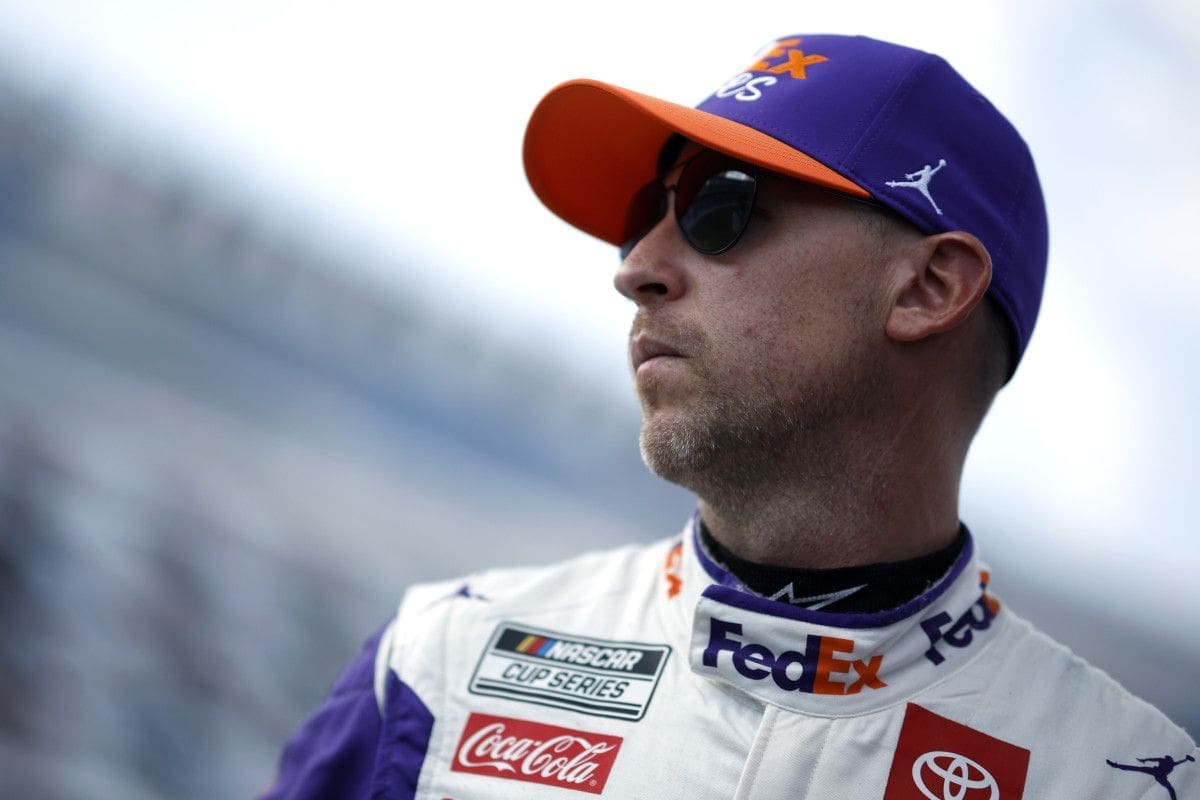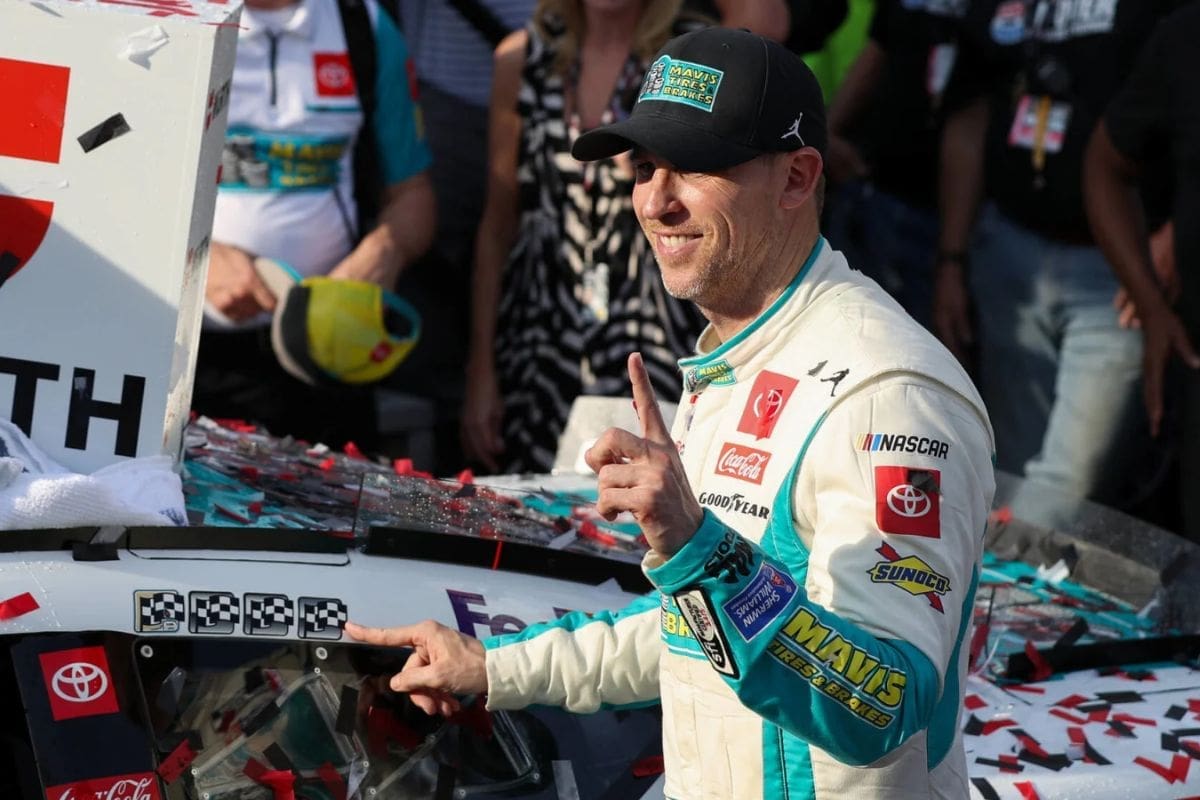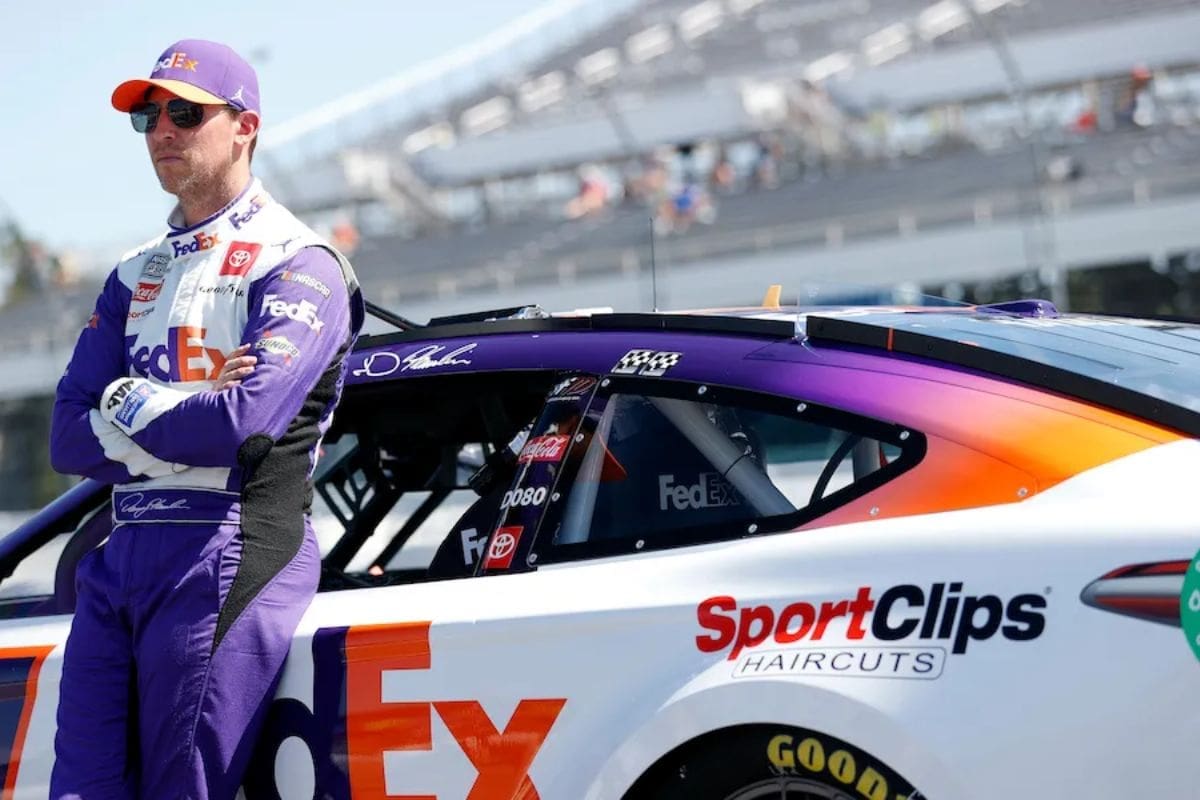Denny Hamlin Questions NASCAR: NASCAR’s proposed charter changes have sparked significant conversation within the racing community, with Denny Hamlin, co-owner of 23XI Racing, vocalizing his apprehensions. Hamlin’s ambitious plan to expand his team to a three-car operation faces potential hurdles due to the possible limitations on team charters. This raises critical questions about how such restrictions might impact team dynamics, sponsorship acquisition, and general competitiveness in the sport. As NASCAR aims to guarantee parity and sustainability, the ambiguity surrounding these proposals necessitates a closer examination of their long-term implications for teams like 23XI Racing.
Key Takeaways
- Denny Hamlin expresses concerns over NASCAR’s potential cap on team charters, complicating his plans for 23XI Racing’s expansion.
- Hamlin highlights the vital role of charters in securing sponsorships and ensuring team participation.
- The proposed charter limitations may hinder new team developments and strategic growth within 23XI Racing.
- Hamlin questions the fairness and consistency in NASCAR’s application of these new charter rules.
- Regulatory ambiguity by NASCAR creates challenges for future planning and talent acquisition for teams like 23XI Racing.
NASCAR Considers Limiting Team Charters
As rumors of NASCAR’s potential policy shift to limit team charters circulate, industry stakeholders are weighing the implications for the competitive landscape and team ownership dynamics. The proposed policy allegedly aims to cap the number of charters per team at three, with exceptions for established organizations like Hendrick Motorsports and Joe Gibbs Racing.
The rationale behind this potential policy shift appears to be multifaceted. On one hand, limiting the number of charters a single team can hold could democratize the competition by preventing any one team from monopolizing the grid space. This could, in theory, level the playing field and give smaller or newer teams a better chance to compete.
For organizations like 23XI Racing, co-owned by Denny Hamlin, the proposed limitations could pose significant challenges. Emerging teams that are in the process of expanding their footprint in the sport might find their growth ambitions mixed by such regulations.
As NASCAR works on this policy, balancing the interests of established powerhouses and aspiring entrants will be vital for maintaining the sport’s competitive integrity and economic viability.

Hamlin’s Expansion Plans and NASCAR’s Proposal
Denny Hamlin’s ambitions to expand 23XI Racing to a three-car team and elevate Corey Heim to full-time status in the Cup Series could hit roadblocks due to NASCAR’s proposed charter limitations. Hamlin, co-owner of 23XI Racing, is eager to grow the team and tap into Heim’s promising talent, but regulatory hurdles may hinder these plans.
NASCAR’s proposal to limit the number of charters, a move aimed at maintaining competitive balance and financial stability across the sport, has introduced a layer of complexity for team owners like Hamlin who are looking to expand. The current charter system, which guarantees entry into each race for charter-holding teams, has become a critical asset for teams seeking to secure sponsorship and ensure consistent participation.
Hamlin’s pursuit of a charter from Stewart-Haas Racing indicates his strategic navigating in an increasingly competitive environment. However, the proposed limitations present a formidable challenge. If NASCAR implements stricter controls on charter acquisitions and allocations, Hamlin’s ability to integrate Heim as a full-time driver could be considerably hampered.
In balancing the need for a sustainable competitive framework with the entrepreneurial spirit of team owners, NASCAR’s decision on charter limits will be crucial. For Hamlin and 23XI Racing, the outcome could dictate the trajectory of their expansion plans and the professional development of promising drivers like Corey Heim.
Doubts and Speculations
Hamlin has raised questions about NASCAR’s motivations behind the proposed charter changes, suggesting potential favoritism towards certain ownership groups and creating a wave of uncertainty among team owners. This doubt comes from a perceived lack of transparency in NASCAR’s decision-making process, leading to speculation that the changes might benefit a select few at the expense of broader team interests.
“That’s just something that’s coming to a head now, We’ll see here shortly but again, there are things in the charter agreement that are changing that is being put in there by NASCAR that I don’t think the teams themselves actually requested. That’s what it’s going to be anyway. Come see me when it’s the final eight or final twelve [in the playoffs]. Ain’t gonna be but just a couple of teams in there and you’re just not going to stop that. ”-(hamlin)
Hamlin’s apprehensions focus on the implications of these changes for competitive balance and financial sustainability within the sport. By thinking that NASCAR could be prioritizing the interests of certain influential ownership groups, Hamlin highlights a critical issue: the potential for an uneven playing field.
Moreover, the ambiguity surrounding the specific benefits and drawbacks of the charter changes has only intensified the unease among team owners. Without clear communication from NASCAR, these stakeholders are left to speculate on how their investments and competitive prospects might be affected.
Balancing Hamlin’s concerns, it is significant to recognize that NASCAR’s leadership may have strategic reasons for these proposed adjustments. However, the lack of a thorough dialogue with team owners has fueled doubts about the equity and inclusiveness of the process. For a sport that relies heavily on the trust and collaboration of its teams, addressing these speculations with transparent and extensive communication is pivotal.

Competition and Parity Concerns
Despite NASCAR’s encouragement for increased competition and parity, Hamlin remains skeptical about the effectiveness of these measures in leveling the playing field. He argues that systemic advantages held by top-tier teams will continue to overshadow reforms aimed at democratizing success in NASCAR. According to Hamlin, the current structure, even with charter restrictions, fails to bridge the gap between powerhouse teams and those with fewer resources.
“[NASCAR] is trying to. They’re trying everything they can. Parity, parity, parity, but it’s the same freaking three or four cars that are up front every single week. You’re not going to stop the best drivers, the best teams, the best crew chiefs, the best pit crews from being the best. You’re not going to stop that. So, I don’t know. It will be interesting to see how it all comes together but I can speak for my group just saying we’d like to get a deal done sooner than later because certainly it’s hard to plan for the future when we don’t have a charter agreement and right now we don’t.”- (hamlin)
Hamlin’s doubt is rooted in the observation that leading teams possess not merely financial strength but also superior engineering, strategic insight, and organizational depth. These elements create a competitive edge that charter adjustments alone cannot mitigate. While NASCAR’s charter system was designed to provide stability and encourage investment across all teams, Hamlin points out that it inadvertently entrenches the dominance of well-established teams. Top teams can utilize their substantial resources to adapt swiftly to regulatory changes, thereby maintaining their competitive advantage.
Hamlin highlights that true parity in the sport would require more thorough reforms that address inequalities in technology access, talent acquisition, and operational efficiencies. The disparity in these areas means that smaller teams face an uphill battle to break into the upper echelons of the competition.
Hamlin’s perspective invites a broader dialogue about the underlying factors that influence competitive balance in NASCAR. It sparks a crucial conversation on whether current measures are merely treating symptoms rather than addressing root causes. Advocates for increased parity may need to explore multifold strategies that financial, technical, and structural changes to create a more level playing field.
Uncertainty and Future Planning
Given the ongoing debate over competitive balance, Hamlin emphasizes the importance of resolving charter agreements to guarantee that teams can effectively plan for future growth and stability. The lack of clarity in NASCAR’s charter regulations poses significant challenges for teams like 23XI Racing, making it difficult to chart their future course amidst the evolving landscape of NASCAR ownership.
“They want some ownership groups, they don’t want others, that’s for sure, I’m just letting you know. They want to pick and choose their ownership groups.”-(hamlin)
Hamlin, a co-owner of 23XI Racing, has been vocal about the necessity for clear and consistent charter agreements. These agreements not only provide teams with a sense of security but also allow them to make strategic decisions regarding investments, sponsorships, and expansions. The current ambiguity surrounding these regulations can hinder a team’s ability to attract new talent and secure long-term partnerships, ultimately affecting their competitiveness and viability.
Hamlin’s perspective brings to light the broader implications of unresolved charter agreements. Teams rely on these foundational elements to build their strategies. Without regulatory clarity, the risk of financial and operational instability increases, potentially leading to a less competitive and dynamic racing environment.

News in Brief: Denny Hamlin Questions NASCAR
The proposed limitations on team charters by NASCAR present significant challenges for 23XI Racing’s expansion plans, as articulated by Denny Hamlin.
These changes could impact sponsorship acquisition and team participation, emphasizing the necessity for clear communication from NASCAR.
The uncertainty surrounding these potential regulations complicates strategic decision-making and talent acquisition, highlighting the need for a balanced approach that considers competition and parity while addressing the concerns raised by team stakeholders.
Also Read: Denny Hamlin on Larson’s Indy 500 Choice: Enough Penalty
